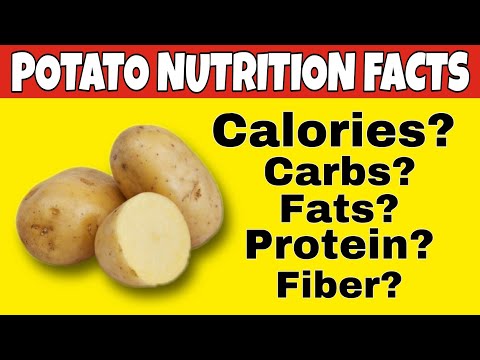Potatoes are not just a staple in our diets, they are also a powerhouse of essential vitamins and nutrients. When it comes to vitamins, potatoes have got you covered. These humble tubers are a rich source of vitamin C, which plays a vital role in boosting our immune system and protecting our cells from damage. But that’s not all. Potatoes also contain significant amounts of vitamin B6, which is crucial for brain development and function, as well as the production of neurotransmitters that regulate our mood and sleep patterns. But wait, there’s more! Potatoes are also a good source of vitamin B3, also known as niacin, which helps convert food into energy and supports proper digestion. This essential vitamin is involved in over 400 enzymatic reactions in our body, making it a true multitasker. So, whether you prefer them baked, mashed, or fried, potatoes offer a delicious and nutritious way to boost your vitamin intake. With their abundance of vitamin C, vitamin B6, and vitamin B3, these versatile tubers are a valuable addition to any diet. Incorporate potatoes into your meals and reap the benefits of these essential vitamins for overall health and well-being.

Vitamins in Potatoes
| Vitamin | Benefits | Amount per 100g |
|---|---|---|
| Vitamin C | Boosts immune system, helps in collagen production | 19.7 mg |
| Vitamin B6 | Supports brain development, aids in red blood cell formation | 0.3 mg |
| Vitamin B3 (Niacin) | Converts food into energy, promotes healthy skin | 1.4 mg |
| Vitamin B5 (Pantothenic Acid) | Helps in metabolism, synthesis of hormones and cholesterol | 0.8 mg |
| Vitamin B1 (Thiamine) | Aids in energy metabolism, supports nerve function | 0.1 mg |
| Vitamin B2 (Riboflavin) | Assists in energy production, maintains healthy skin | 0.1 mg |
Potato Power: Unveiling the Nutritional Wonders and Health Benefits
Understanding the Nutritional Value of Potatoes
Potatoes are one of the most widely consumed vegetables worldwide. They are not only delicious but also highly nutritious. Packed with essential vitamins and minerals, potatoes offer numerous health benefits. Let’s delve into the vitamins found in potatoes and explore their importance in maintaining a healthy diet.
Vitamin C: A Powerful Antioxidant
Vitamin C is a water-soluble vitamin that acts as a powerful antioxidant in the body. Potatoes are an excellent source of vitamin C, with a medium-sized potato providing nearly half of the daily recommended intake. This vitamin plays a crucial role in boosting the immune system, promoting wound healing, and protecting against oxidative stress. Additionally, vitamin C aids in the absorption of iron, contributing to the production of collagen, a protein essential for healthy skin, joints, and blood vessels.
Vitamin B6: Essential for Brain Function
Vitamin B6, also known as pyridoxine, is vital for proper brain development and function. Potatoes are a good source of this vitamin, which helps produce neurotransmitters such as serotonin, dopamine, and gamma-aminobutyric acid (GABA). These neurotransmitters play a crucial role in regulating mood, sleep, and overall mental health. Additionally, vitamin B6 is involved in the synthesis of hemoglobin, the protein responsible for transporting oxygen in the blood.
Potassium: A Key Electrolyte
Potassium is an essential mineral and electrolyte that plays a vital role in maintaining proper heart and muscle function. Potatoes are an excellent source of potassium, with a medium-sized potato containing more potassium than a banana. Adequate potassium intake helps regulate blood pressure, balance fluid levels in the body, and support proper muscle contractions. Consuming potassium-rich foods like potatoes is especially beneficial for individuals with high blood pressure or those at risk of cardiovascular diseases.
Folate: Crucial for Cell Growth
Folate, also known as vitamin B9, is necessary for the production and maintenance of new cells, making it particularly important during periods of rapid cell growth, such as pregnancy and infancy. Potatoes are a good source of folate, providing about 10% of the recommended daily intake in a medium-sized potato. Adequate folate intake is crucial for preventing birth defects, supporting brain health, and promoting healthy red blood cell production.
Vitamin K: Essential for Blood Clotting
Vitamin K is a fat-soluble vitamin that plays a vital role in blood clotting and bone health. Although potatoes contain a relatively small amount of vitamin K, every bit counts towards meeting the recommended daily intake. Vitamin K helps activate proteins necessary for blood clotting, preventing excessive bleeding. Additionally, it contributes to bone health by assisting in the production of proteins required for bone formation and mineralization.
In conclusion, potatoes are not only a versatile and delicious vegetable but also a nutritional powerhouse. Their high vitamin content, including vitamin C, vitamin B6, folate, and vitamin K, along with their potassium content, makes them an excellent addition to a balanced diet. Incorporating potatoes into your meals can provide numerous health benefits, from boosting the immune system to supporting brain function and promoting healthy blood clotting. So, next time you enjoy a plate of potatoes, savor their taste while appreciating the valuable vitamins they offer.
Vitamins in Potatoes:
- Vitamin C
- Vitamin B6
- Vitamin B3
- Vitamin B5
- Vitamin B1
- Vitamin B2

